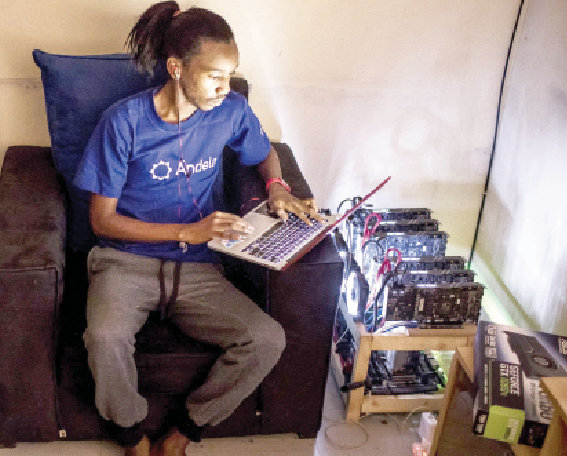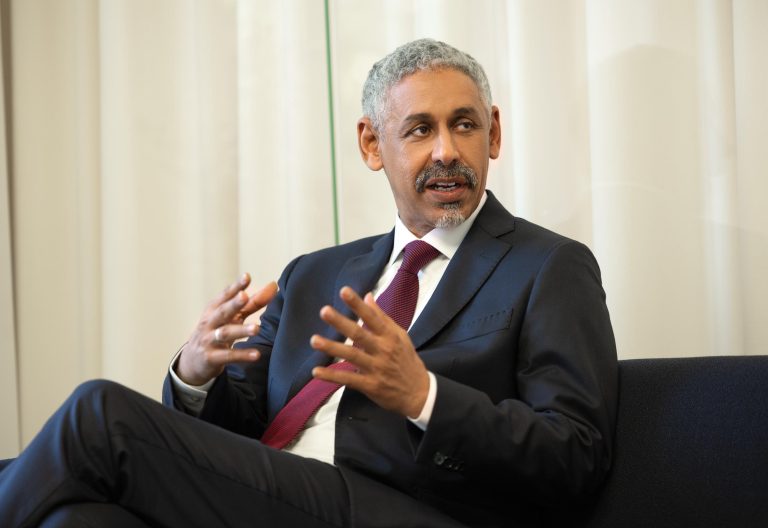Why crypto trading gains popularity among youth amid economic challenges

Cryptocurrency trading is steadily gaining traction among Kenyan youth, driven by the need to navigate a challenging economic landscape characterised by high living costs, restrictive government policies, and soaring unemployment rates.
For many, this digital venture has become a “safe haven” that offers flexibility and higher returns compared to traditional employment models.
Sharon Aluso, a young Kenyan trader, shares her journey into cryptocurrency trading. “I always wanted to try online trading. In 2022, I started exploring crypto after seeing numerous ads on TikTok and other social media platforms. I began practicing on demo accounts, where I made some virtual profits, although I couldn’t withdraw them because I wasn’t using real cash,” she explains.
Taking a leap of faith, Aluso deposited actual funds into a trading account. “After trading for a short period, I withdrew Sh30,000 in profits—an amount I had never touched before. From that moment, I decided to pursue this as a form of self-employment. Today, I can comfortably pay my bills and meet my financial needs,” she adds.
Cryptocurrency trading offers two primary avenues: Forex trading and binary trading. Forex trading involves buying and selling currencies, with profits determined by the number of “lots” traded. Larger lot sizes translate to higher earnings, with banks and financial institutions providing insights into currency trends to guide traders.
On the other hand, binary trading requires traders to predict market movements, effectively making it a form of high-stakes gambling. While it offers significant rewards, binary trading carries substantial risks, as incorrect predictions can result in heavy losses.
Aluso notes the importance of vigilance and technical analysis in both types of trading. “You must monitor the trading charts closely to make informed decisions. Without proper knowledge, the risks can outweigh the benefits,” she cautions.
For Jeff Kayeli, a civil engineering graduate, cryptocurrency trading became a lifeline during his university days. “I started trading to achieve financial independence. With trading, you can make money anywhere, anytime, as long as you have an internet connection and a laptop,” he says.
Beyond financial gains, Kayeli highlights the personal growth that comes with trading. “It has taught me patience, resilience, and emotional control, especially during losses. I’ve also learned financial discipline and risk management, which are invaluable skills,” he adds.
Advancements in technology have revolutionised cryptocurrency trading, making it more accessible and efficient. Aluso credits an artificial intelligence (AI) trading application for simplifying her trading process.
“I started using this AI application in October last year. It’s been profit after profit. All I need to do is deposit funds, and the AI handles the trades, identifying the best-performing cryptocurrencies. The process takes about two minutes, and I receive my gains,” she explains.
This innovation allows traders like Aluso to focus on other pursuits while enjoying consistent profits. “I no longer spend hours analyzing trading charts. The more you invest, the higher the returns, making it an efficient and flexible source of income,” she notes.
Despite its appeal, cryptocurrency trading is not without challenges. The industry is rife with fraudsters who prey on inexperienced traders. Aluso warns newcomers to exercise caution.
“Fraudsters often pose as trainers or agents, pressuring you to deposit funds while dodging real questions. They may also set high withdrawal limits or demand referrals for eligibility. It’s essential to conduct thorough background checks before engaging with anyone,” she advises.
Recognising these risks, the government is working on a consumer protection framework to safeguard traders from fraud. Organisations such as the Blockchain Association of Kenya (BAK) have also proposed regulatory measures, including the establishment of Virtual Asset Service Providers (VASPs), to ensure market integrity and protect investors.
Cryptocurrency trading is not only empowering individuals but also contributing to Kenya’s economy. According to Kenya Revenue Authority (KRA), the country recorded a Sh10 billion net profit from cryptocurrency transactions in the fiscal year ending June 2024.
Kenya ranks third in cryptocurrency adoption in sub-Saharan Africa, behind Nigeria and South Africa, and 21st globally. The sector’s growth has created jobs, generated government revenue, and cemented Kenya’s position as a leader in digital innovation.
The flexibility and accessibility of cryptocurrency trading have made it a viable option for many Kenyan youth seeking financial stability. Platforms like AI-driven trading applications are reducing barriers to entry, while ongoing efforts to regulate the sector promise to address challenges such as fraud.















